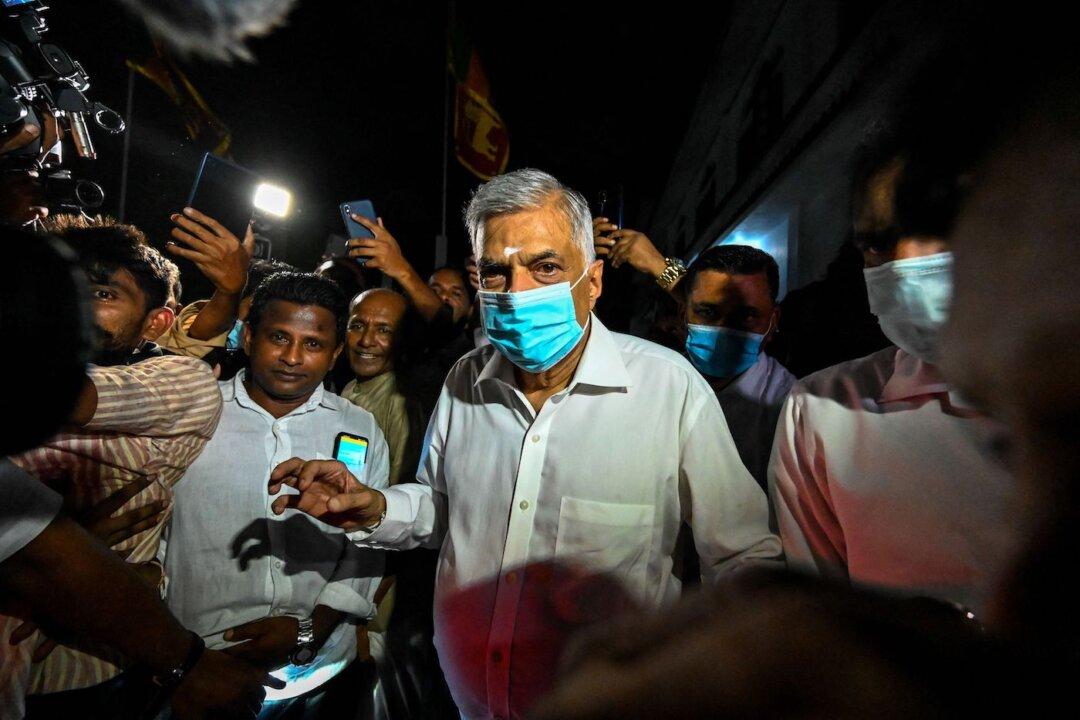Sri Lanka’s prime minister is increasing efforts to revive the country’s “completely collapsed” economy amid a lack of foreign exchange reserves and severe shortages of essential items.
“We are now facing a far more serious situation beyond the mere shortages of fuel, gas, electricity, and food. Our economy has faced a complete collapse,” Prime Minister Ranil Wickremesinghe told Parliament on June 22.





